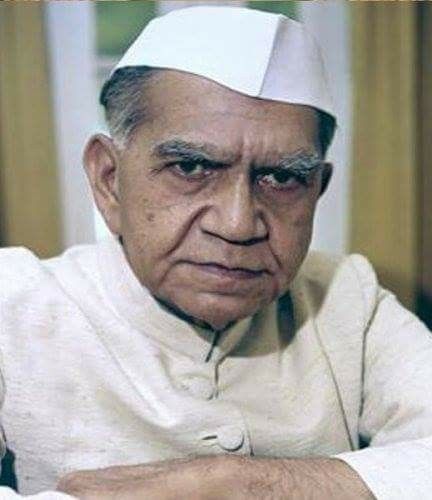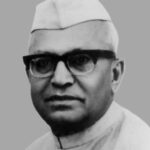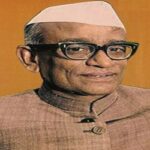Fakhruddin Ali Ahmed: The President Who Left a Lasting Legacy
Fakhruddin Ali Ahmed, the fifth President of India, is remembered as a statesman, lawyer, and a dedicated public servant who contributed significantly to the nation’s progress. Born on May 13, 1905, in Delhi, Fakhruddin Ali Ahmed’s life story is a compelling tale of determination, intellect, and service to the people. His tenure as President during one of India’s most challenging periods highlights his commitment to democracy and the rule of law.
Who Was Fakhruddin Ali Ahmed?
Fakhruddin Ali Ahmed was the second Muslim to hold the office of President of India. Known for his humility, calm demeanor, and strong sense of justice, he played a critical role in guiding the nation during turbulent times.
Early Life and Education
- Family Background: He was born into a prominent family; his father, Col. Zalnur Ali Ahmed, was a doctor in Assam. His mother belonged to an esteemed family of Delhi.
- Education: Fakhruddin Ali Ahmed attended St. Stephen’s College in Delhi and later studied law at the University of Cambridge in England. It was during his time in England that he became involved in politics and the Indian independence movement.
- Inspiration from Gandhi: Inspired by Mahatma Gandhi, he returned to India and joined the Congress Party, dedicating himself to the struggle for independence.
Role in the Freedom Movement
Fakhruddin Ali Ahmed was deeply involved in the Indian freedom struggle.
- Salt Satyagraha: He actively participated in the Salt Satyagraha, demonstrating his resolve to challenge British rule.
- Arrest and Imprisonment: His involvement in the Quit India Movement led to his imprisonment, but this did not deter his dedication to the cause.
- Close Ties with Leaders: He worked closely with leaders like Jawaharlal Nehru and Sardar Vallabhbhai Patel, earning their trust and admiration.
Political Career
After independence, Fakhruddin Ali Ahmed emerged as a respected leader and held several significant positions in the Indian government.
- Ministerial Roles: He served as Minister of Education, Minister of Food and Agriculture, and Minister of Industrial Development.
- Governance Philosophy: He believed in inclusive development and worked towards uplifting the underprivileged sections of society.
- President of India: In 1974, he became the fifth President of India. His presidency was marked by significant political and social challenges, including the Emergency (1975-1977).
Daily Life and Personal Values
Fakhruddin Ali Ahmed’s daily routine was characterized by simplicity and discipline.
- Humble Lifestyle: Despite his high office, he remained grounded and approachable.
- Family Man: He was devoted to his family and maintained strong ties with his roots.
- Sense of Duty: He believed in serving the people and upholding the Constitution, even during politically sensitive times.
Interesting Facts About Fakhruddin Ali Ahmed
- He was the second Muslim President of India after Dr. Zakir Husain.
- He is remembered for signing the proclamation of the Emergency in 1975 under Prime Minister Indira Gandhi’s advice.
- Fakhruddin Ali Ahmed was an accomplished linguist, fluent in multiple languages, including Urdu, Assamese, and English.
- He was the first Indian President to die in office, passing away on February 11, 1977.
Significance and Legacy
Fakhruddin Ali Ahmed’s contributions to India go beyond his political roles.
- Commitment to Democracy: Despite controversies during his tenure, he upheld the principles of democracy and the Indian Constitution.
- Advocacy for Education: As Education Minister, he emphasized the importance of literacy and modern education.
- Inclusivity: He worked tirelessly to ensure the inclusion of marginalized communities in the nation’s progress.
FAQs About Fakhruddin Ali Ahmed
Q1. What were Fakhruddin Ali Ahmed’s major contributions as President?
As President, he navigated the country through politically turbulent times and emphasized the importance of upholding constitutional values.
Q2. Why is Fakhruddin Ali Ahmed significant in Indian history?
He was a key figure in India’s freedom movement, a dedicated public servant, and the second Muslim President of India.
Q3. What was Fakhruddin Ali Ahmed’s role during the Emergency?
He signed the proclamation of the Emergency in 1975, a controversial period in India’s history.
Observance and Relevance Today
Fakhruddin Ali Ahmed’s legacy is honored through institutions and programs that promote education, justice, and inclusivity. His commitment to democracy and governance serves as an inspiration for current and future leaders.
Fakhruddin Ali Ahmed’s life is a testament to the values of humility, service, and dedication to the nation. As we reflect on his journey, we are reminded of the importance of inclusive development, the rule of law, and the role of leaders in shaping a just society. His contributions continue to inspire generations to work towards a better and united India.










